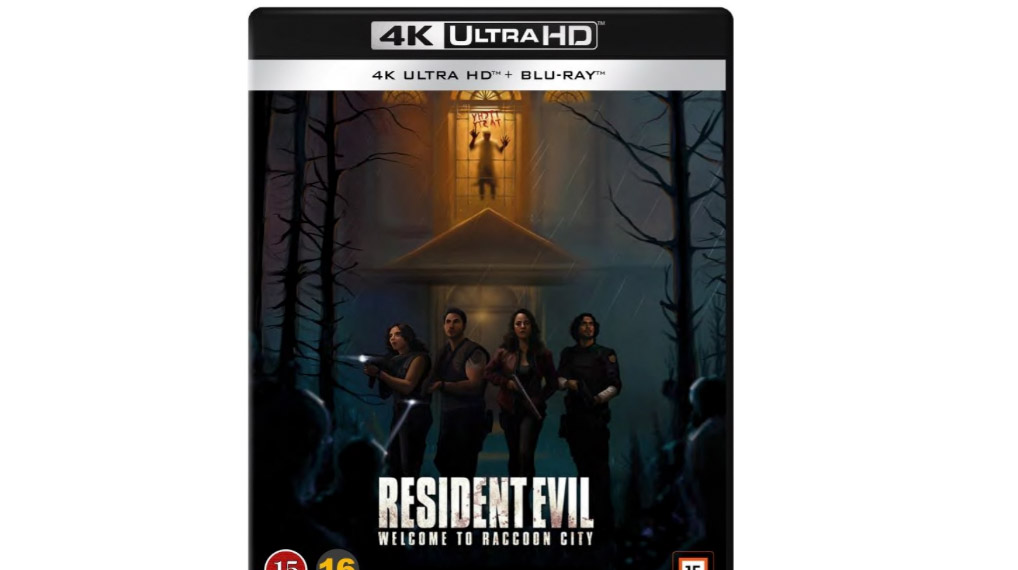TL;DR
Ready for a zombie outbreak? This review dives into "Resident Evil: Welcome to Raccoon City," aiming for a faithful adaptation of the beloved survival horror game. While it nails the look with accurate characters and iconic locations, the film gets bogged down by a messy, overstuffed plot and confusing character introductions that even seasoned fans might find disorienting. The CGI is a letdown, and the pacing feels both too slow and rushed. Despite a great Dolby Atmos soundtrack, the visuals are murky. Ultimately, this reboot struggles to capture the magic of the original games. Will this adaptation revitalize the franchise, or is it another misstep? Find out if it's worth your time!
Orphaned Claire Redfield (Kaya Scodelario) returns to her hometown of Raccoon City after a long absence. Alongside her brother, police officer Chris (Robbie Amell), she confronts a nightmarish scenario as the city’s inhabitants succumb to zombification, seemingly linked to the dubious practices of The Umbrella Corporation.
In 1996, Shinji Mikami’s original Resident Evil title debuted on the Playstation. I vividly recall the intense fear induced by the relentless zombie attacks. The game’s innovative approach to survival horror made it a truly unique and genuinely terrifying experience. The iconic scene of zombie dogs crashing through a window remains a benchmark for jump scares in gaming.
In 2002, a film adaptation directed by Paul W.S. Anderson (Event Horizon, Alien VS Predator) was released. While passable, the film diverged significantly from the source material. Character interpretations were altered, and the narrative borrowed elements from other games and genres. After a succession of sequels, the original Resident Evil film series concluded with Resident Evil: The Final Chapter in 2016. In predictable Hollywood fashion, a reboot was initiated.
Nearly two decades after the initial film adaptation, Resident Evil – Welcome to Raccoon City premiered, promising a more faithful adaptation. Indeed, many characters and environments, such as the mansion and police station, are visually accurate. The components for a compelling cinematic interpretation appeared to be present. However, the film suffers from a disorganized narrative and an overabundance of content.
The sheer number of characters crammed into a single film creates immediate confusion. Director Johannes Roberts‘ relative inexperience is evident in several directorial missteps. For instance, Claire mentions her brother, a police officer. The scene cuts to a man waking up in bed, also a police officer. The audience is initially led to believe this is her brother, but it is an entirely separate character. While viewers intimately familiar with the game’s lore may navigate this, those with a less comprehensive understanding will likely find it disorienting.
Another significant drawback of Resident Evil – Welcome to Raccoon City is the subpar CGI. While practical makeup effects are utilized for the standard zombies, the more heavily mutated creatures are rendered with CGI that appears unconvincing. The cutscenes in the games exhibit superior visual fidelity. Furthermore, the post-production addition of fire and smoke is poorly integrated. Actors deliver their lines in smoke-filled environments, seemingly oblivious to the proximity of the flames.
The script is a condensed amalgamation of storylines from various games, prioritizing the inclusion of as much content as possible. Neal McDonough makes a fleeting appearance as William Birkin, his complex narrative arc compressed into a handful of scenes. Similarly, Wesker (Tom Hopper) is integrated into the plot in a hurried and underdeveloped manner. Paradoxically, the film suffers from both a sluggish pace and a frenetic rush in inappropriate moments.
Ultra HD 4K releases can sometimes elevate even mediocre films, and this holds true to a limited extent here. The Dolby Atmos soundtrack is a notable strength, providing a genuinely immersive soundscape. The audio is powerful, with impactful effects such as the truck’s roar at the beginning of the film. However, the visuals are less impressive. While presented in 4K with HDR, the image is noticeably contrastless and excessively dark. HDR typically enhances dark scenes with exceptional clarity, but this is not the case here. A comparison with the Blu-ray version revealed an even poorer visual presentation.
The bonus material comprises three brief documentaries focusing primarily on the filmmakers’ supposed talent in creating scares and CGI characters, an assertion that is difficult to reconcile with the final product.
In conclusion, while Paul W.S. Anderson’s Resident Evil films may have lacked fidelity to the game series and struggled with overall quality, they appear as relative masterpieces when compared to the shortcomings of this recent adaptation.
Sony provided review copies for this evaluation. The provision of materials does not influence our editorial independence; our reviews are conducted with an objective focus on the interests of our readers and consumers.
